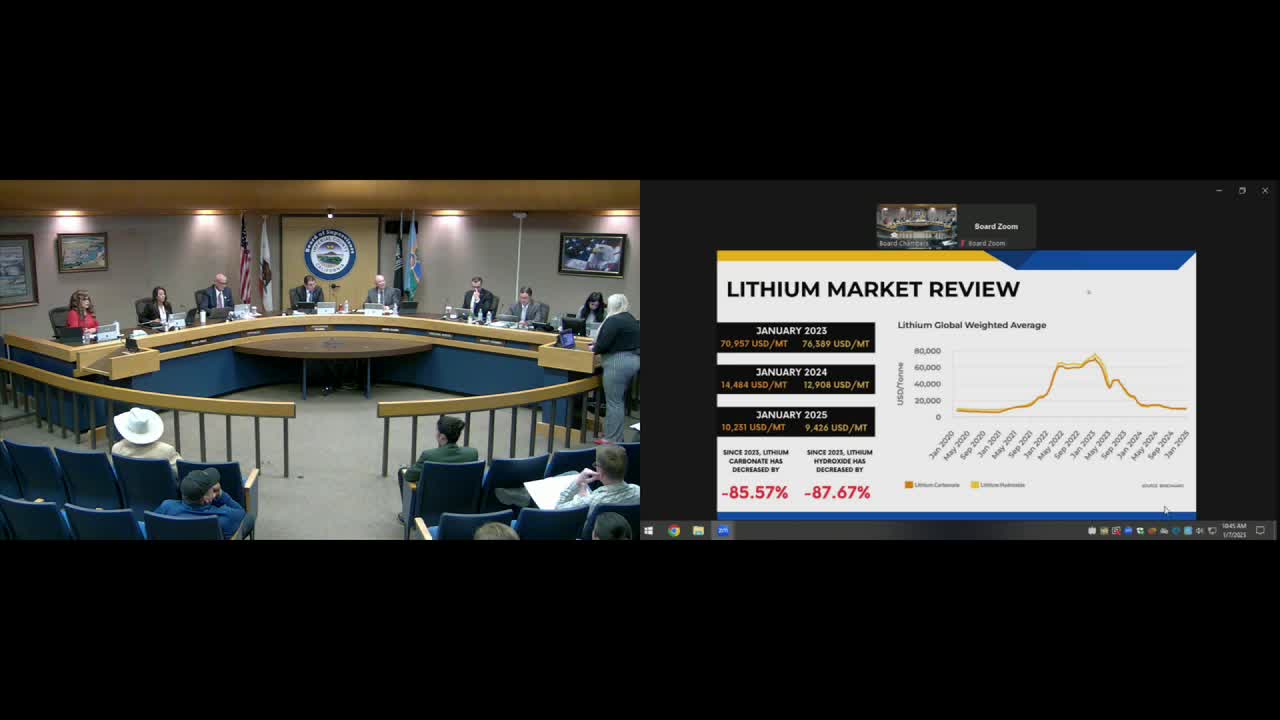Imperial County outlines Lithium Valley strategy as global lithium prices tumble
Get AI-powered insights, summaries, and transcripts
Subscribe
Summary
Deputy CEO Barry Bean told the Imperial County Board of Supervisors that global lithium prices have fallen sharply since 2023, and he outlined the county's strategy to preserve investor interest through planning, local fiscal tools and permitting work.
Deputy CEO Barry Bean, who serves as Imperial County's lithium ombudsman, gave a detailed update on the county's Lithium Valley initiative at the board's Jan. 7 meeting and urged continued local alignment to attract investment.
Bean said lithium carbonate and lithium hydroxide prices that peaked in early 2023 have dropped dramatically, noting, "These numbers don't look very promising." He told supervisors the county is seeing roughly an 85 percent decline in carbonate and an 87 percent decline in hydroxide prices from January 2023 to January 2025, a correction that makes commercial recovery more challenging without additional supports.
The presentation highlighted policy and planning steps the county has taken to make Imperial County competitive, including a 600-plus-page baseline report, an infrastructure assessment, a county lithium tax with an associated funding plan for local allocation, a Good Neighbor community benefits agreement, a draft specific plan covering roughly 51,000 acres, a health assessment, and a programmatic environmental impact report. Bean said those elements create an ecosystem the county believes is unique and offers a competitive advantage over other domestic and international lithium projects.
Bean described the county's approach as broader than mineral recovery: planning areas include hydrogen, logistics, processing and manufacturing, workforce development and workforce attraction. He urged local officials, industry and legislators to help market Imperial County as a location for integrated clean-energy and battery supply-chain investment.
Supervisor Jesus Escobar requested the board's lithium presentation be posted to the county website and social media promptly; staff directed that the slides and materials be posted.
No specific contractual actions or permits were approved at the meeting. Bean and staff said future meetings will provide additional technical and land-use detail to the board and public.
